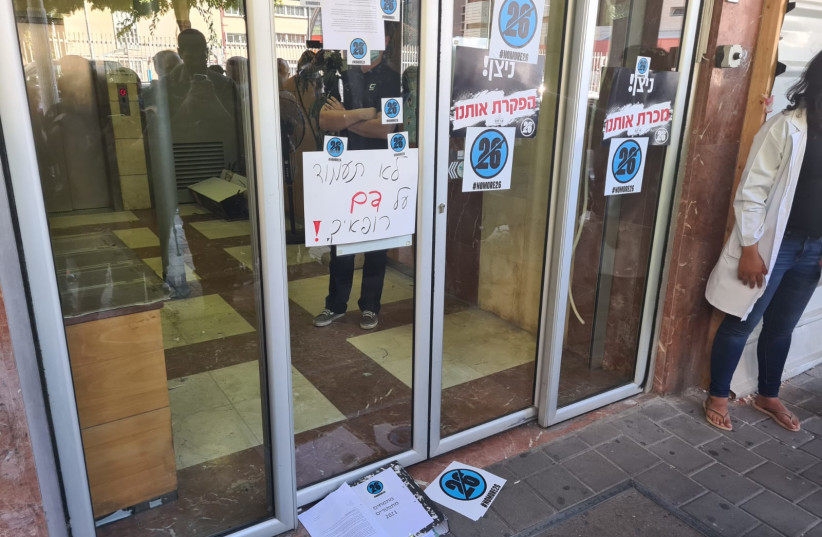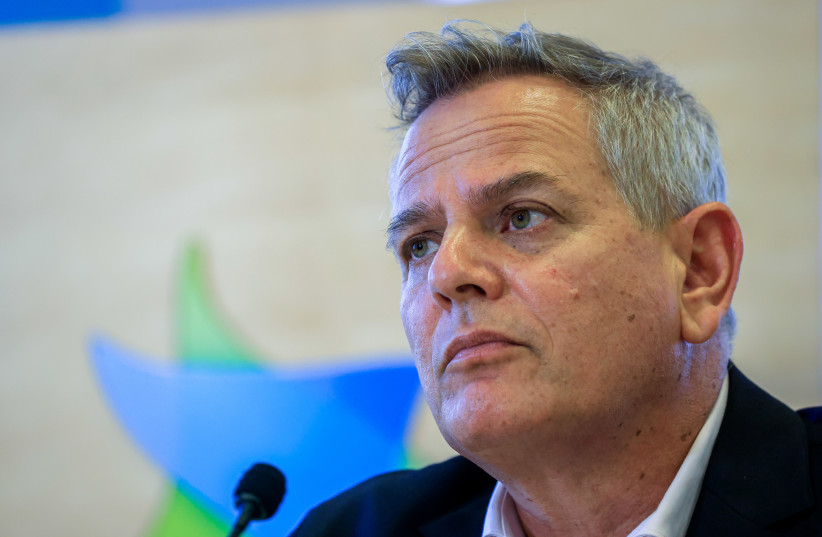More than 2,500 medical residents, students and interns working in Israel announced their resignations to the Health Ministry on Thursday to protest the length of their 26-hour shifts.
“This is a sad day,” said Dr. Rey Biton, head of the Mirsham residents’ union. According to Maariv, Biton was prevented from entering the ministry’s building to deliver the letter. Individual letters will be submitted to the head of the hospitals at the beginning of the week, Mirsham said.
The issue of the excessive length of shifts for residents, interns and students has been controversial for years.
An outline approved by the Health, Finance and Economy ministries in the past few days was rejected by the representatives of the medical residents.
The plan entails, over the course of five years, a decrease of shifts from 26 hours to 16 hours plus two overlapping hours.
The first phase of the plan is scheduled to start on March 31, 2022, in hospitals in the periphery at 10 medical centers and apply to residents in all wards except for surgery. A year later, the shifts will also be shortened for residents in intensive-care units and in anesthesiology.
Over the course of four years, the new rules would be extended to residents in all fields in all of the country’s hospitals.

In addition, according to the outline, as the new rules roll out, the average number of hours per week should not exceed 63, and beginning on January 23, the residents should not work more than a total of six shifts per month.
On Wednesday, before the protests began, the plan was described as a historic development by Health Minister Nitzan Horowitz.
“For the first time after years of talking, it has happened,” he wrote on Twitter. “The shortening of residents’ shifts is on the way. This is a historic change that until now everyone had avoided tackling. Therefore, we will start with 10 hospitals in the periphery, in all the departments, and in the next stages (set in the agreement) the outline will be applied to the whole country so that we will be able to recruit enough doctors.”
Israeli hospitals already suffer from a shortage of staff, exacerbated by the COVID-19 pandemic, and the Health Ministry says moving more quickly will create additional shortages.
For this reason, a provision to include emergency- and internal-medicine departments all over the country in the first phase of the new outline was scrapped, and the young medical staff took the protest to the street.
“Ninety percent of interns will continue to work... 26-hour shifts in a row,” Biton said during a rally on Wednesday to protest the outline. “Our requirement to include internal-medicine, coronavirus and emergency-medicine departments in the plan was not included. Those who have been at the frontline of the fight against COVID for almost two years were abandoned.”
Mirsham had required that at least 25% to 30% of the interns would be covered by the new rules in 2022.

In an interview with Channel 12 on Thursday night, Health Ministry Director-General Nachman Ash defended the approved outline.
“After a long time, we are taking a very significant step to shorten the shifts,” he said. “We wanted to do something even wider, but we realized it was not possible.”
